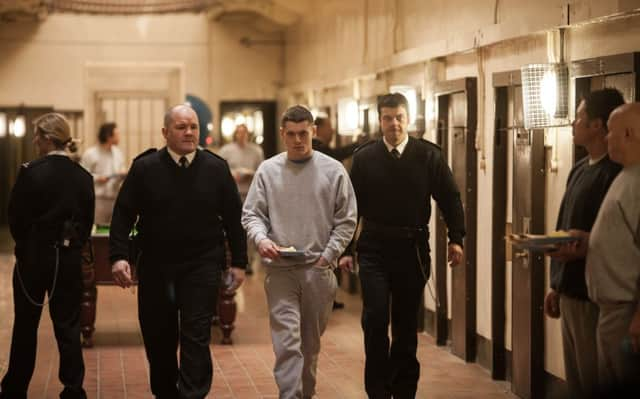Film review: Starred Up


The latest to be added to the list is Scottish director David Mackenzie’s ‘Starred Up’, and it’s one of the very best.
Taking its name from a phrase used to describe a young offender transferred to mainstream prison on account of consistent violent behaviour, the bleak tale successfully reinvigorates the genre by avoiding cliché and adding biting social commentary.
Advertisement
Hide AdAdvertisement
Hide AdThe story sees Eric (Jack O’Connell) - the ‘starred up’ main character - arrive at prison to be admitted, stripped and shown to his airless new home.
In an eye-opening, near-wordless opening section we see Eric expertly preparing for his new life, customising the cell and ingeniously fashioning and hiding a razor-sharp shank. His violent nature is then shockingly exposed in a brutal encounter with a blameless neighbour.
It’s a bruising introduction and the bloody scenes continue throughout, though the violence is never gratuitous and always serves to further the plot or drive home a pertinent point.
As Eric is reunited with his jailbird father (Ben Mendelsohn), he starts to understand the source of his own rage through meetings organised by a well-spoken psychologist (Rupert Friend). They are populated by a motley crew of former thugs desperate to change, but ultimately destined to be thwarted by the authorities.
Advertisement
Hide AdAdvertisement
Hide AdIt’s hard to describe just how good Jack O’Connell is as Eric. He delivers a career-defining performance which belies his relative inexperience - no more so than when he is alone on screen, his eyes communicating more frustration than a thousand swear words.
The world he inhabits, shot inside a decommissioned prison in Northern Ireland, is utterly convincing - as are the daily trials of prison life.
The impressive verisimilitude of the vast majority of the scenes can be largely credited to first-time screenwriter Jonathan Asser, who brings a career of working in Wandsworth Prison and other jails to the movie, including running the classes for problematic inmates which serve as the heart of the story.
Asser’s belief that violence needs to be addressed rather than caged informs the whole film, right up to its shattering conclusion.